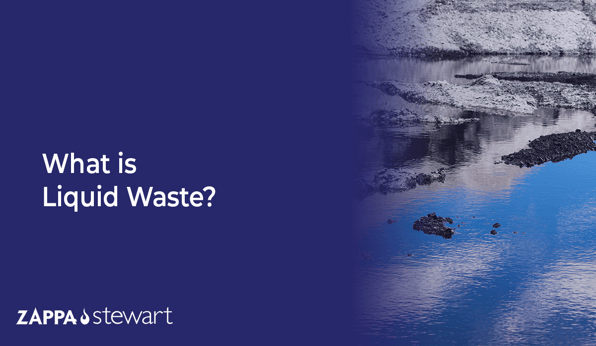Unknown Facts About Reclaim Waste
Unknown Facts About Reclaim Waste
Blog Article
The Ultimate Guide To Reclaim Waste
Table of ContentsThe 45-Second Trick For Reclaim WasteReclaim Waste Things To Know Before You Get ThisThe Ultimate Guide To Reclaim WasteHow Reclaim Waste can Save You Time, Stress, and Money.Reclaim Waste Fundamentals Explained
Explore the types, events, and forms of fluid waste. Residential sewage waste refers to the waste and products from a household sewage-disposal tank. This kind of waste is created by people in houses, colleges, and various other buildings. This only includes septic systems that have a drainpipe field. The correct monitoring and disposal of residential sewage waste need liquid waste to be moved to a sewer treatment plant where the appropriate techniques and equipment are put on cleanse and throw away waste.
Commercial waste typically consists of prospective threats, such as combustible materials or a blend of liquid and solid waste products, and calls for a more advanced and comprehensive disposal procedure. The disposal of industrial waste generally involves the filtration of waste prior to transport to make certain safe and appropriate disposal. Hazardous waste is developed from byproducts and runoff of industrial processes and manufacturing.
This kind of waste can not utilize the exact same sewage monitoring transport or procedures as septic or business liquids. The industrial waste monitoring process requires the assessment and screening of liquid waste before it undergoes the disposal procedure (liquid waste removal melbourne). Drainage waste is the liquid waste that comes from runoff and excess stormwater in very inhabited areas or cities
Overflow waste can cause contamination and flooding if not taken care of properly. Making certain proper waste monitoring can stop calamities and decrease ecological injury.
Fascination About Reclaim Waste
Call PROS Solutions today to discover about our waste management and disposal services and the appropriate ways to look after the liquid waste you produce.
(http://www.askmap.net/location/7161699/australia/reclaim-waste)This so-called 'wastewater' is not only an important resource but, after treatment, will certainly be launched to our land, rivers or the ocean. Made use of water from toilets, showers, bathrooms, kitchen area sinks, laundries and industrial processes is known as wastewater.

water utilized to cool equipment or tidy plant and devices). Stormwater, a form of wastewater, is drainage that moves from agricultural and city areas such as roofings, parks, yards, roadways, courses and gutters right into stormwater drains, after rainfall. Stormwater moves untreated straight to neighborhood creeks or rivers, eventually reaching the ocean.
The Greatest Guide To Reclaim Waste
In Queensland, the majority of wastewater is dealt with at sewage treatment plants. Wastewater is moved visit site from residential or commercial sites through a system of drains and pump terminals, referred to as sewage reticulation, to a sewage treatment plant. City governments develop, keep and run most sewage treatment plants. Operators are accredited under the Environmental Management Act 1994 to release treated wastewater at an acceptable ecological criterion into waterways.
The Department of Natural Resources recommends local federal governments regarding managing, operating and preserving sewerage systems and treatment plants. In unsewered areas, local governments may require owners to set up individual or household sewage treatment systems to deal with residential wastewater from bathrooms, kitchens, shower rooms and laundries. The Department of Natural Resources authorizes making use of household systems when they are proven to be reliable.
A lot of stormwater gets no therapy. In some new neighborhoods, therapy of some stormwater to eliminate litter, sand and crushed rock has started utilizing gross contaminant catches. Wastewater therapy occurs in four stages: Eliminates solid matter. Bigger solids, such as plastics and other objects incorrectly discharged to sewage systems, are eliminated when wastewater is travelled through displays.
Wastewater then flows into big tanks where solids work out and are removed as sludge. Grease and scum are skimmed from the surface. Utilizes little living microorganisms called micro-organisms to damage down and remove staying dissolved wastes and great particles. Micro-organisms and wastes are incorporated in the sludge. Gets rid of nitrogen and phosphorus nutrients that can cause algal flowers in our rivers and endanger marine life.
Reclaim Waste Fundamentals Explained
Nutrient elimination is not available whatsoever sewer therapy plants since it calls for pricey specialist equipment. It is coming to be a lot more typical in Queensland. Clear liquid effluent generated after treatment might still contain disease-causing micro-organisms. If this effluent is launched right into rivers such as rivers or the sea, the micro-organisms will at some point die out.

Many wastewater streams right into the sewerage system. Under the Act, regional governments administer approvals and licences for ecologically appropriate tasks (Periods) including wastewater releases that could have a local effect.
The Best Strategy To Use For Reclaim Waste
Or else, samples are considered lab analysis. Usually many tests are required to develop the levels of each of the different contaminants such as oils, hefty steels and chemicals in water. Monitoring offers accurate details about water quality and can verify that permit problems are being met. The info obtained with surveillance offers the basis for making water top quality decisions.
Report this page